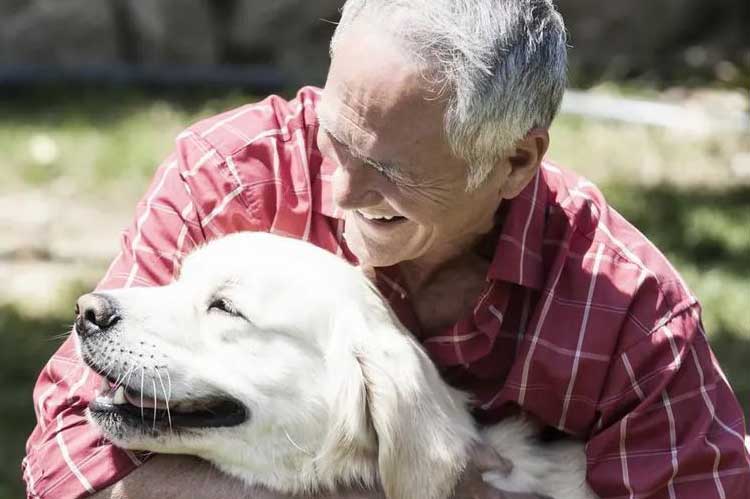Depression in older adults – symptoms, risks, & how to get help
- Admin |
- June 29, 2023
It is common to experience bad days or low moods occasionally, but experiencing these emotions...
Read more
The years you may have spent with your spouse as an older adult might make it much harder to deal with your grief after their passing. Living alone can exacerbate feelings of loneliness and isolation, which makes it more difficult to find meaning and joy in your daily activities.


It hurts to lose your life companion. The sparks shooting on your first date, the wedding bells ringing as you both said "I do," the laughter of your children as you chase them around the house—all of these memories you shared with your spouse aren't as vivid without them. The years you may have spent with your spouse as an older adult might make it much harder to deal with your grief after their passing. Living alone can exacerbate feelings of loneliness and isolation, which makes it more difficult to find meaning and joy in your daily activities.
Everyone's path to recovery after losing a spouse is unique, but almost all of them are paved with the strength of sincere human ties. A community of support is essential to getting through the difficult days and celebrating the good ones, whether it be through grieving support group attendance, relying on family and friends, or just asking other people for assistance. It may also provide your life with fresh comfort, purpose, and brightness to participate in pursuits where you can meet others and explore your interests.
After losing a spouse, grief doesn't have to define your later years; it never truly goes away.
Here are three effective strategies for overcoming the agony of losing a loved one, obtaining healing, and moving on with your life.
1. After losing a spouse, live each day as it comes: It is challenging to get out of bed, much less carry on with your "normal" day, due to overwhelming emotions of loss, shock, and even guilt. In actuality, life continues despite our mourning. The healing process depends on you allowing yourself the time and space to grieve the death of your spouse. But eventually, every day—and your general well-being—becomes what you make of it.
Some of the most efficient strategies to keep a healthy habit are to eat well, exercise, and remain occupied with work or hobbies. A daily routine can provide you with the motivation you need to get out of bed, take care of yourself, and get over your grief. It will feel like a breakthrough on certain days. Some will seem like backward steps. Each should be cherished since they all contribute to the healing process.
2. Look for activities that have a purpose and significance: The life we share with a spouse gives many of us meaning and purpose. Maybe it's watching the sunset every evening from your favorite park seat, supporting the organizations you both cared about or helping to raise your grandkids. However, after losing your partner, these pursuits may seem meaningless, and you could even feel terrible for carrying them out alone. Finding a healthy outlet for meaning and purpose is crucial to the healing process because of this. It can involve rediscovering an old interest or finding new ones that let you explore what makes you happy even when your spouse isn't around to share it with.
Taking into account the Dimensions of Wellness that go into living a healthy, meaningful life is a terrific method to locate activities that might give you that feeling of purpose. The activities listed below might help you discover a therapeutic and meaningful outlet for each aspect of well-being.
| Physical | Yoga, laughter sessions, dance |
|---|---|
| Intellectual | Reading, treasure hunts, bonfires |
| Social | Volunteering, karaoke, and concert outings |
| Emotional | Gardening, painting, and creative writing |
| Spiritual | Church services, journaling, and meditation |
3. Create a network of allies: It may seem selfish to ask others for support while you're dealing with the death of a spouse. When the pain and loneliness become too much to bear, it takes strength and vulnerability to ask for help. Finding and developing a network of people to lean on, whether it be family, friends, or a grieving support group, enables you to express your sorrow more freely and lessens the burden it carries.
Finding individuals you can trust who can relate to your experience is crucial when creating a support network, especially for older folks. "After you lose someone, life doesn't end," "You can both live and love."
The worst times in life are never alone at Heritage Care Home because there is a caring community there to assist you. In our neighborhoods, neighbors go beyond being friends to become family members who may offer a shoulder to cry on when the weight of loss becomes too much. Our cutting-edge wellness program, which combines the Five Dimensions of Wellness, also provides a wide choice of fun activities to assist you in determining what motivates and fulfills you. Get in touch with us to find out more about how a new home at Heritage Care Home might aid in your recovery and give you a sense of hope, pleasure, and belonging.

It is common to experience bad days or low moods occasionally, but experiencing these emotions...
Read more
Dogs are excellent elderly companions. Dogs are a delight to share a house with because of their amusing, devoted, and adorable personalities...
Read more
Any age can find dating intimidating, but older adults in particular. The majority of people only date once...
Read more
It is common to experience bad days or low moods occasionally, but experiencing these emotions...
Read more
Everyone should lead an active lifestyle, but older people and seniors in retirement may find it especially beneficial for their health and happiness...
Read more
This has happened to all of us; we scoured the internet for hours looking for the ideal present for our loved ones, only to frequently be let down. Finding the ideal present can be difficult...
Read moreFEEL THE PLEASURE OF BEING CAREFREE